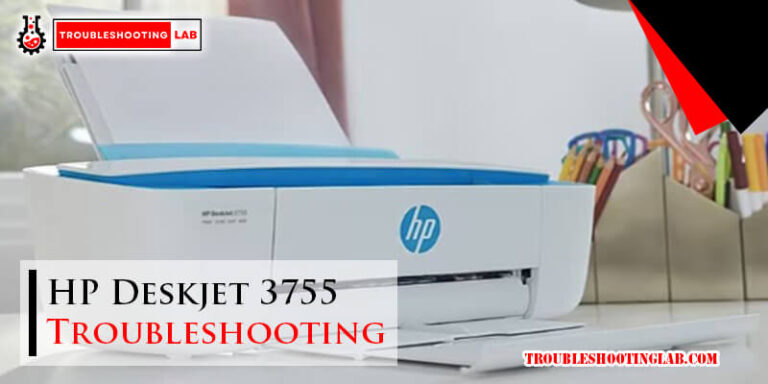Mitsubishi Air Conditioner Troubleshooting: Boost Cooling Efficiency Now!
If your Mitsubishi air conditioner is not cooling, check the thermostat settings and clean the filters. Efficient troubleshooting can ensure optimal performance and save you money on unnecessary repairs.
When dealing with common issues like airflow problems or unusual noises, it’s essential to address the root cause efficiently. Regular maintenance and timely repairs can help prolong the lifespan of your Mitsubishi air conditioner. As a homeowner, familiarizing yourself with troubleshooting techniques is a proactive approach to maintaining a comfortable indoor environment.
Taking swift action on minor issues can prevent potential breakdowns and costly repairs in the long run. Start by implementing simple troubleshooting steps before seeking professional assistance for more complex problems.

Common Issues With Mitsubishi Air Conditioners
Mitsubishi air conditioners are known for their reliability, but like any other appliance, they can face problems over time. Here are the common issues you may encounter with your Mitsubishi air conditioner:
Unusual Noises
If you hear strange sounds like grinding or squealing, it could indicate a problem with the fan blades or motor. Inspect the unit and replace any damaged parts.
Weak Airflow
When the airflow from your Mitsubishi AC is weak, it may be due to a clogged air filter or issues with the blower fan. Clean or replace the air filter regularly and check the fan for any obstructions.
Leakage
Leakage from your Mitsubishi air conditioner could be caused by a clogged drain line or a refrigerant leak. Clear the drain line and have a professional inspect and repair any refrigerant leaks.
Diy Troubleshooting Tips
If your Mitsubishi air conditioner is acting up, try these simple DIY troubleshooting tips before calling in a professional.
Cleaning The Filters
Regularly cleaning the filters in your Mitsubishi air conditioner is crucial for optimal performance. Follow these steps:
- Turn off the air conditioner and unplug it from the power source.
- Locate the air filters, typically found behind the front cover of the unit.
- Remove the filters and gently vacuum or rinse them with water to remove any dust or debris.
- Allow the filters to dry completely before reinserting them into the unit.
Checking For Blockages
Blockages in your air conditioner can hinder airflow and efficiency. Here’s how to check for blockages:
- Inspect the air vents and ensure they are not obstructed by furniture or curtains.
- Examine the outdoor unit for any debris such as leaves or dirt that may be blocking airflow.
- Clean the area around the outdoor unit to prevent future blockages.
Examining The Thermostat
The thermostat controls the temperature settings of your air conditioner. Examining the thermostat can help resolve temperature issues:
| 1. | Check that the thermostat is set to the desired temperature. |
| 2. | Replace the batteries in the thermostat if it is not responding. |
| 3. | Ensure there are no obstructions around the thermostat that may affect its accuracy. |
Professional Maintenance And Repair
Mitsubishi air conditioners are renowned for their reliability and efficiency, but like any HVAC system, they require professional maintenance and repair to operate optimally. Regular servicing and professional intervention are crucial aspects of keeping your Mitsubishi air conditioner functioning at its best. Let’s delve into the importance of regular servicing and the signs that indicate the need for professional intervention.
Importance Of Regular Servicing
Regular servicing of your Mitsubishi air conditioner is essential to ensure its longevity and performance. It involves cleaning the filters, checking the refrigerant levels, examining the electronic components, and evaluating overall system efficiency. By conducting routine servicing, you can prevent potential breakdowns, maximize energy efficiency, and prolong the lifespan of your air conditioner.
Signs For Professional Intervention
- Inadequate Cooling: If your air conditioner is producing insufficient cooling, it may require professional attention.
- Unusual Noises: Uncommon noises such as grinding or squealing indicate potential mechanical issues that necessitate professional repair.
- Frequent Cycling: If your air conditioner frequently turns on and off, it may indicate a malfunction that requires professional intervention.
- Leakage: Any signs of water leakage or moisture around the unit should prompt a professional assessment to prevent further damage.
Optimizing Mitsubishi Air Conditioner Efficiency
Mitsubishi air conditioners are known for their superior performance and energy efficiency. By understanding how to optimize the efficiency of your Mitsubishi air conditioner, you can not only reduce your energy consumption but also enhance the overall comfort of your space. In this section, we will explore two key aspects of optimizing your Mitsubishi air conditioner efficiency: utilizing energy-saving features and maximizing air circulation. Let’s dive in!
Utilizing Energy-saving Features
Mitsubishi air conditioners come equipped with a range of energy-saving features that can help minimize your energy consumption without compromising on comfort. By utilizing these features, you not only save on your electricity bills but also reduce your carbon footprint. Here are some effective ways to make the most of these energy-saving features:
- Programmable Timer: Take advantage of the programmable timer feature to schedule your air conditioner to operate only when needed. By setting specific on/off times, you can avoid unnecessary cooling when the space is unoccupied, saving energy in the process.
- Economy Mode: Enable the economy mode on your Mitsubishi air conditioner to optimize energy efficiency. This feature automatically adjusts the cooling output to maintain a comfortable temperature while using minimal power.
- High-Performance Filter: Regularly clean or replace the air filter in your Mitsubishi air conditioner to ensure proper airflow and efficiency. A clogged filter can impede air circulation, leading to higher energy consumption.
- Zone Control: If your Mitsubishi air conditioner has zone control capabilities, make use of it to cool specific areas of your space instead of cooling the entire area. This helps save energy by directing cooling resources only where needed.
Maximizing Air Circulation
Proper air circulation is crucial for maintaining an efficient and comfortable environment with your Mitsubishi air conditioner. Ensuring that the cool air is evenly distributed throughout the room helps eliminate hot spots and reduces the strain on the system. Here are some tips to maximize air circulation:
- Fan Speed: During hot summer days, it’s best to set your Mitsubishi air conditioner fan speed to a higher setting to promote better air circulation. This helps distribute the cooled air more effectively, resulting in improved comfort.
- Clean Vents and Registers: Regularly clean the vents and registers of your air conditioner to remove any dust or debris that may obstruct the airflow. A clear pathway for the conditioned air ensures efficient distribution throughout the space.
- Furniture Placement: Arrange your furniture in a way that doesn’t hinder the airflow from your Mitsubishi air conditioner. Avoid placing large objects or obstructions near the vents, as this can impede the circulation of cool air.
- Ceiling Fan Usage: If you have a ceiling fan, run it in conjunction with your air conditioner. Ceiling fans help to circulate the conditioned air, allowing you to raise the temperature on the air conditioner thermostat without sacrificing comfort.
By optimizing the energy-saving features and maximizing air circulation in your Mitsubishi air conditioner, you can achieve enhanced efficiency and a more comfortable indoor environment. Implement these strategies and enjoy the benefits of a well-maintained and optimized air conditioning system!
Future-proofing Your Cooling System
Future-proofing your cooling system is a smart investment that can save you both time and money in the long run. By staying ahead of any potential issues and considering upgrades for greater efficiency, you can ensure your Mitsubishi air conditioner operates smoothly for years to come. In this section, we’ll explore how investing in smart technology and considering upgrades can help future-proof your cooling system.
Investing In Smart Technology
One way to future-proof your cooling system is by investing in smart technology. With the advancements in Internet of Things (IoT), Mitsubishi air conditioners offer smart features that can enhance your cooling experience. These smart features allow you to control your air conditioner remotely, monitor and adjust temperature settings, and receive notifications about maintenance or performance issues.
By integrating your Mitsubishi air conditioner with a smart home system, you can enjoy the convenience of controlling your cooling system from anywhere. Whether you’re at work, on vacation, or simply in another room, you can easily adjust the temperature to ensure optimum comfort and energy efficiency.
Considering Upgrades For Greater Efficiency
In addition to smart technology, considering upgrades for greater efficiency is another way to future-proof your cooling system. Mitsubishi air conditioners offer various upgrades that can significantly improve energy efficiency and overall performance.
One option to consider is upgrading to a multi-zone system. This allows you to cool different areas of your home independently, which can save energy by only cooling the rooms that are in use. Additionally, upgrading to a model with a higher SEER (Seasonal Energy Efficiency Ratio) rating can result in greater energy savings and reduced operating costs.
Regular maintenance and servicing are also essential for optimizing the performance and longevity of your Mitsubishi air conditioner. By scheduling routine maintenance, you can catch and address potential issues before they escalate, ensuring your system operates at its best all year round.
Frequently Asked Questions On Mitsubishi Air Conditioner Troubleshooting
How To Troubleshoot A Mitsubishi Air Conditioner That Is Not Cooling?
If your Mitsubishi air conditioner is not cooling, check the air filters for dirt and blockages. Clean or replace them if necessary. Ensure that the thermostat is set to a cool temperature and that the unit is not obstructed by furniture or curtains.
What Are The Common Reasons For A Mitsubishi Air Conditioner To Leak Water Inside?
A Mitsubishi air conditioner may leak water inside due to a clogged condensate drain line or a faulty condensate pump. Other possible causes include a frozen evaporator coil or a refrigerant leak. It is recommended to seek professional assistance to diagnose and address the issue.
How Can I Fix A Mitsubishi Air Conditioner That Is Making Strange Noises?
To fix a Mitsubishi air conditioner making strange noises, first, check for any loose parts or debris inside the unit. Tighten or remove them if necessary. If the noises persist, it is advisable to contact a professional technician to inspect and repair the unit.
Why Is My Mitsubishi Air Conditioner Constantly Turning On And Off?
If your Mitsubishi air conditioner constantly turns on and off, it may be due to a dirty or blocked air filter. Clean or replace the filter to improve air circulation. It is also possible that the unit is experiencing a malfunctioning thermostat or a refrigerant leak, which would require professional assistance to repair.
What Should I Do If My Mitsubishi Air Conditioner Is Not Responding To The Remote Control?
If your Mitsubishi air conditioner is not responding to the remote control, check the batteries to ensure they have enough power. Replace them if necessary. If the issue persists, try resetting the remote control by removing the batteries and pressing all the buttons.
If these troubleshooting steps do not work, consult the user manual or contact Mitsubishi customer support for further assistance.
Conclusion
Troubleshooting your Mitsubishi air conditioner can be simple and effective. By understanding common issues and their solutions, you can keep your unit running smoothly. Regular maintenance and professional assistance when needed can ensure optimal performance and longevity. With these tips, you can enjoy a cool and comfortable home all year round.





